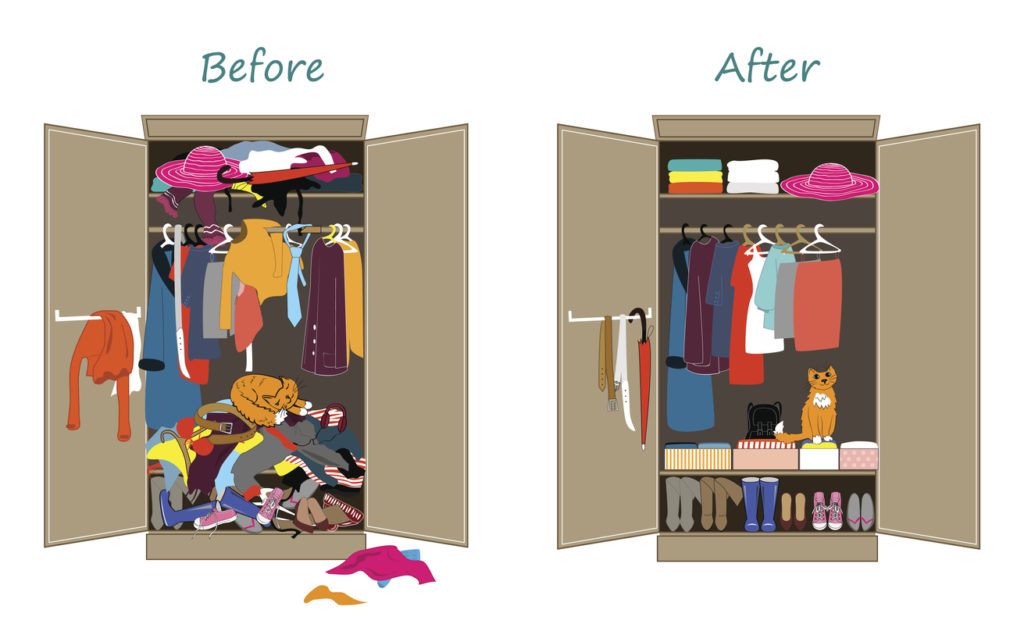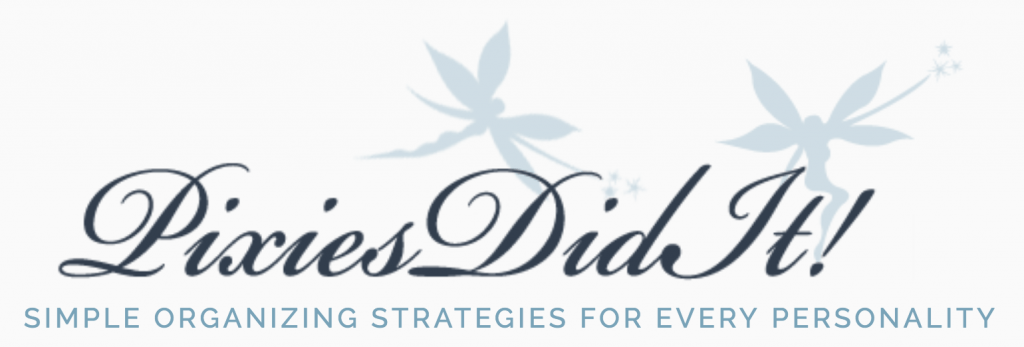Here’s Why You Have A Hard Time Getting Organized

Hermann Ebbinghaus isn’t exactly a household name. But it should be. Ebbinghaus’s research explains why “out of sight, out of mind” is a truism. He did pioneering research in the field of memory in the late 1800s that bears out to this day and is known for his discovery of the Forgetting Curve, the Spacing Effect & the Learning Curve. Ebbinghaus’s findings relate primarily to memory recall and optimizing it. But, they also hold the key to leveraging the brain’s forgetfulness to easily declutter. If this sounds like you, you may have an Organic organization type.
You can figure out your personality type by taking our quiz here.
One of the biggest barriers for people to declutter is that the very act itself involves too much remembering … remembering an item’s usefulness, remembering its value, remembering its sentiment. The more someone remembers an item’s importance, the more difficult it is to let go. In our research, we found that Organics have the most difficulty with decluttering, but that doesn’t mean you can’t get your house in order! Here are some tips you can use to set your home up for organizational success:
- Don’t use bins or drawers! Organics are generally visual organizers, so out of sight, out of mind. Try and keep things out in the open, but in their place, if they’re important.
- Set up reminders. Do not purchase a planner. Often, Organics find themselves canceling or changing plans. A digital calendar can help organize schedules plus can send reminders about important appointments so you don’t forget!
- Embrace piles. It’s a common misconception that piles are the result of disorganization, but we’ve found that’s not the case for Organic organizers! Piles are a result of having a visual memory – if you see it, you’ll remember it.
- Make a mental note. Oftentimes Organics like to keep a mental to-do list for the day rather than writing things down. But if you start getting overwhelmed, writing it down can help with the avoidance of important tasks.
- Do what you can. Organics like to get as much done in the moment, understanding that they may not remember the task needs to get done later. Embrace it! Get as much done as you can and don’t beat yourself up for not being perfect.
If you’re an Organic organizer, we hope these tips help you to better understand how to embrace your natural organization style! This will help you be more productive and effective with your organization in the long term.
HOW THE FORGETTING CURE & SPACING EFFECT WORK
First, let’s start with a little bit on Ebbinghaus’s research: In 1885, he published, Memory: A Contribution to Experimental Psychology, from a limited study he did on himself. He hypothesized that the speed of forgetting depends on several factors such as how important something is, its representation, and physiological factors. He concluded that the difference between individuals’ memories could be partially eliminated through training in mnemonic techniques (e.g., things like i before e except after c…) and spaced repetition based on active recall (e.g., not just seeing something but actively recalling it).
This is fantastic news for someone who wants to study for a test or a big presentation at work. But it’s terrible news for someone who wants to forget something exists (e.g., that slightly itchy and very pricy sweater in the closet). The very act of decluttering — going through possessions to get rid of them — is essentially a perfect active recall exercise.
WHY REMEMBERING IMPACTS DECLUTTERING
Take an itchy sweater for example. Someone sees and ignores it in the closet daily for obvious reasons. When decluttering the closet, the itchy sweater is taken out and examined. In doing so, touching and feeling it, said someone realizes it’s not that itchy and perhaps they just need the right undergarment. They remember that the sweater was expensive and could go with their new navy pants. In that instance, they’ve recalled the reasons the sweater exists in their world. They put the itchy sweater back in the closet where it remains untouched.
Most organizers decluttering with clients cajole them to let go of these itchy sweaters and their ilk. But seeing, touching, and actively recalling a possession means that clients miss it more afterward than if it had been consumed by fire without warning. Also, not everyone wants or can afford to hire someone to declutter. Nine times out of ten, the itchy sweaters remain and accumulate making people and their homes less productive and more stressed.
It’s a fact. In 2011, researchers using fMRI (functional magnetic resonance imaging) at the Princeton Neuroscience Institute found decluttering the home and work environment increased people’s ability to focus and process information, as well as productivity. Clutter impedes on people’s success in life.
USING THE FORGETTING CURVE & SPACING EFFECT TO DECLUTTER
The trick to reverse engineering Ebbinghaus’s memory recall advice is to eliminate the active recall exercise at the moment of disposal. In layman’s terms, when you declutter, don’t throw things out right after sorting them.
Get several opaque boxes, go through each room of the house, and put anything not regularly used, needed, or loved in them. In our book, Organize Your Way, we call them “Later Boxes”. If something is on the fence, throw it in there. These boxes are not necessarily ever leaving the premises. Store the boxes in an attic, dry basement, or storage unit, anywhere that isn’t part of daily life. Schedule a time to do a memory exercise with these boxes in 6+ months’ time. E.g., you’ll deal with them “Later”.
When this day arrives, without opening a single box, sit down and write out what is in the boxes that are missing and keep everything on that list. If it’s a long list, by all means, retrieve everything on it. But it’ll likely be a shortlist because 6+ months have passed without repetition of seeing any of these items. They’re not in living areas but in opaque boxes out of sight. In addition, there’s been no recent active recall — no active decluttering. Therefore, there’s less remembering.
MAKING DECLUTTERING EFFORTLESS
To make decluttering effortless going forward, keep a box in the house for this purpose. Call it a Donation Bin or a Later Box. Feed it with clutter throughout the year until it fills up. Close it up. Store it. Schedule a memory list exercise 6+ months out. Put out a fresh empty box. Eventually, decluttering becomes as effortless as putting household trash into a garbage bin.
